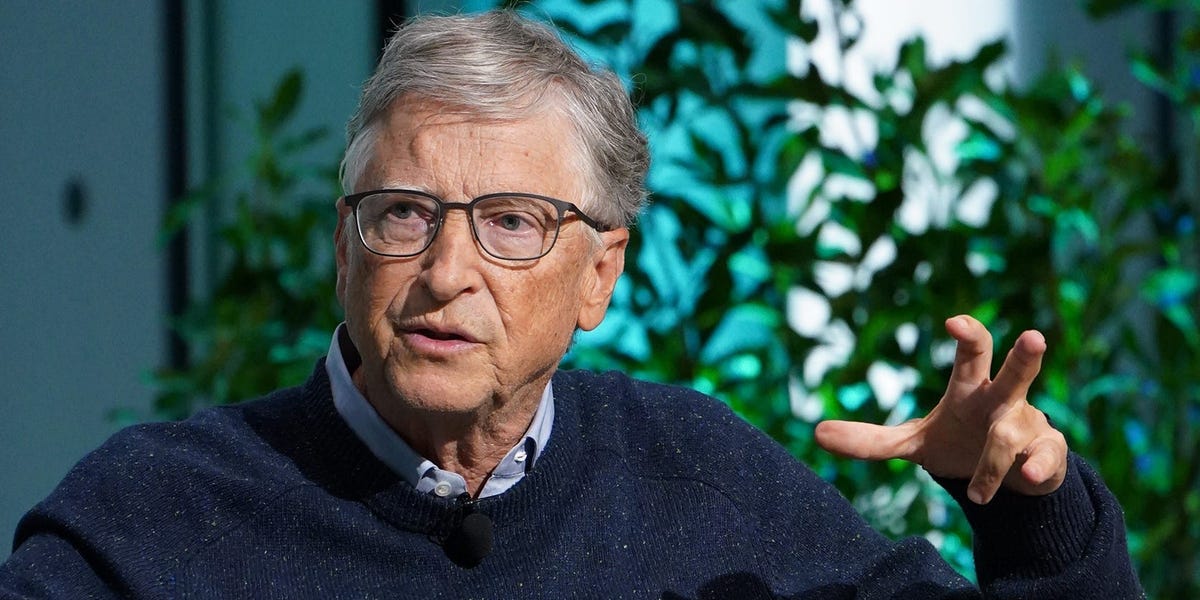- Bill Gates is one of AI’s most enthusiastic proponents, but is wary of the technology’s limitations.
- While AI is remarkably effective at some tasks, its weaknesses are also becoming clearer.
- The key for current AI models, Gates says, is to have “data that embodies the expertise.”
Thanks for signing up!
Access your favorite topics in a personalized feed while you’re on the go.
download the app

Bill Gates has been thinking about AI since long before there was AI.
The Microsoft cofounder is now one of the leading advocates for the technology, and is even rolling up his sleeves to join meetings with his former company to advise them on product development.
And yet for all the promise and success of the past year, there is also a growing awareness of AI’s limitations.
In an interview with Dax Shepard on the Armchair Expert podcast, Gates said he’s experiencing those strengths and weaknesses firsthand: “I’m using it all the time and saying, ‘Okay, no, it’s not good enough for this — but wow, it is good enough for that.'”
AI has proven to be a game changer in several areas, including pharmaceuticals and agriculture, that Gates and his namesake foundation are particularly concerned with.
But he’s less impressed by AI’s Sudoku abilities (it struggles with recursive reasoning, he said) and he is still trying to figure out how to integrate the tools into his own work process.
“If it’s a problem that humans are not good at dealing with, then present techniques don’t create some novel approach,” Gates said.
In other words, in spite of appearances, current AI models aren’t actually magic — they’re just a lot faster at performing well-documented tasks that humans do more slowly.
The key is to have “data that embodies the expertise.”
For example, experts know with a high degree of detail how nitrogen levels affect crop yields and are extremely good at measuring those. AI is a phenomenal help with improving forecasting models there.
By contrast, questions like human happiness or relationship satisfaction are extremely difficult to quantify and predict, and humans have struggled with these questions with highly variable degrees of success throughout history. AI won’t somehow solve those for us on its own.
“I actually think in mental counseling AIs will play a role, but boy, we’re going to have to be very careful about that,” Gates said. “That’s going to require a lot of work that has not been done yet.”
Another surprising area where Gates said current AI models stumble is complex math.
“It doesn’t know to check its answers,” he said. “A Sudoku puzzle, you have to do a lot of recursive reasoning and it doesn’t know to take extra time.”
In a remarkably human way, the AI says it “mistyped” rather than admit it was wrong, Gates added. “It’s so apologetic, and it says it’ll try again, but of course it gets it wrong again.”
Ever the optimist, Gates says these limitations aren’t a reason to try to put the AI genie back in the bottle. The potential upside for humanity is simply too great, even if it will take more work to get there.
While he respects individuals’ and nations’ right to disagree, Gates doesn’t see a future in which the world collectively agrees to pause or roll back the development of this technology.
“Maybe we’ll have a world where parts of the world have chosen to use AI in full, and other people are more like, ‘Get your buggy out, baby,” he said.


